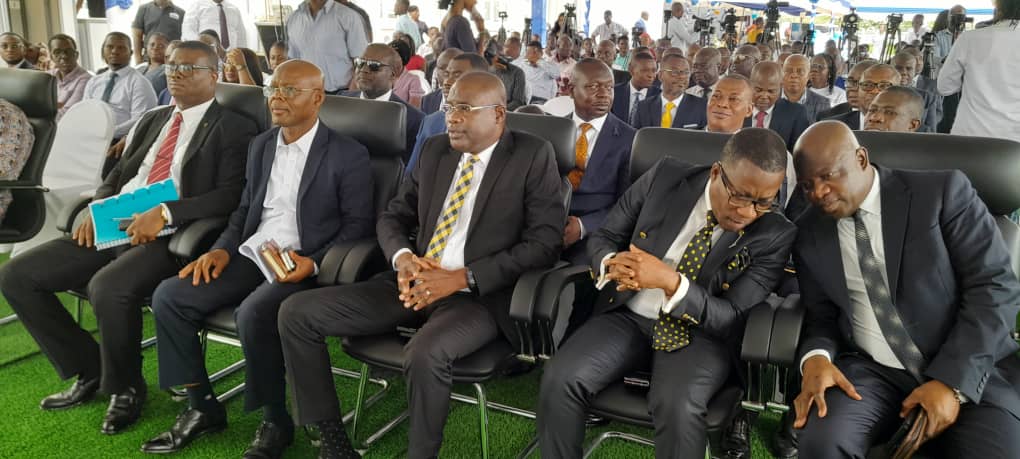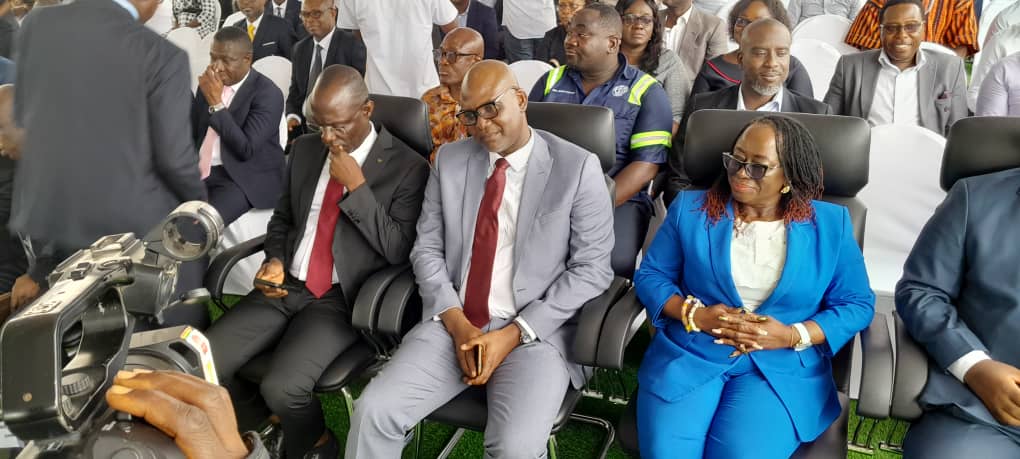By Eunice Hilda A. Mensah
Accra, Oct. 23, GNA – Dr Clifford Abdullah Braimah, Managing Director, Ghana Water Company Limited (GWCL), has encouraged customers to report any GWCL staff involved in illegal conduct.
Such actions include a staff trying to clear a metre of charges and taking a percentage of the unpaid bill under the pretext of helping the customer to save money.
Dr Braimah, who gave the advice on Monday at a press briefing in Accra on the company’s status and accomplishments in the past few years to customers, said when caught, the customer would be considered an accomplice and prosecuted.
Such illegalities, he said, cost the company and the nation huge sums of money that would in turn affect the water systems and supply in the country.
To ensure efficient water distribution and minimise non-revenue water (NRW) that’s water produced but not generating revenue due to various losses, the GWCL had procured and installed over 400 water meters made up of magnetic and ultrasonic clamp-on meters on 90 water systems, he said

The company had also installed approximately 60,000 Smart Meters for drive-by Automatic Meter and Fixed Network Readings in the Greater Accra Metropolitan Area (GAMA) region, transforming the districts into Smart Districts.
The company was also replacing all faulty meters in all regions and undertaking a water loss reduction performance-based contracting.
Dr Braimah disclosed that the GWCL recorded a NRW of 46 per cent for the first half of 2023 exactly as of same period last year.
For the first half of 2023, he said the company’s total water production amounted to 164,652,659.67 cubic meters (m3).
“However, and regrettably, we experienced a considerable water loss of 76,235,600.84 m3, which translates to 46% of the total water produced. This loss consists of two major components: physical losses and commercial losses,” he said.
The physical losses which were the result of leaks and other issues within the company’s distribution network accounted for 53 per cent of the total water loss, equivalent to 40,404,868.45 m3, he said.
Commercial losses on the other hand attributed to issues such as water theft and billing inaccuracies, comprised 47 per cent of the total water loss, amounting to 35,830,732.39 m3.
The Managing Director said while the statistics might pose challenges, they also presented opportunities for improvement and as a diligent and dedicated utility provider, they fully understood the significance of tackling the losses and refining their water management strategies.

Another pressing challenge of the company, Dr Braimah said, was the destructive impact of alluvial mining (Galamsey), which posed a significant threat to the nation’s water sources, leading to pollution, siltation, and degradation of critical water bodies.
The consequences of the activities included turbidity, sand and stone particles damaging pumps, down times as a result of frequent shutdowns for maintenance and increasing dose of chemicals, increasing the cost of production, affecting the quality and safety of the water provided to communities, he said.
Dr Freda Prempeh, the Minister of Sanitation and Water Resources, said water was critical to all sectors of the economy, hence implored the public to help protect all water bodies.
“The turbidity levels on our water bodies are nothing to write home about. The Chinese man there doing galamsey did not know River Pra and River Densu and where it was. It is us who usher them in, so let us all do well to protect our water bodies,” she said.
GNA